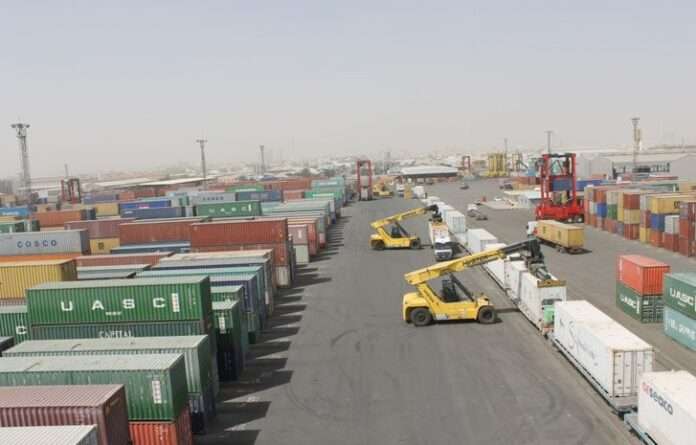

…Vows to get it working
By Seun Ibiyemi
Minister of Marine and Blue Economy, Adegboyega Oyetola, has revealed that the multi-billion-naira Baro Inland Port has remained non-operational since its commissioning in 2019. He attributed the prolonged inactivity to inadequate dredging, poor road and rail connections, and insufficient funding.
Oyetola offered reassurances that the federal government is determined to revitalise the port, transforming it into a dynamic inland gateway serving Niger State and beyond. He spoke on Tuesday during a session with the House of Representatives Ad-Hoc Committee on Stakeholders’ Engagement, which was convened to examine the challenges and opportunities surrounding the Baro River Port.
The committee was established following the adoption of a motion calling for national stakeholder dialogue on the port’s future.
The minister acknowledged that the port’s capacity has been limited by gaps in essential infrastructure and navigability along the River Niger. He stated, “The port has faced operational constraints, chief among them the absence of critical linkages to road and rail infrastructure, and navigability challenges along the River Niger.”
Reflecting on the port’s development, Oyetola said, “When the issue of the port was being conceived, ordinarily one would have expected that infrastructures that would make it operational should have been provided. The ministry was created barely two years ago, so we inherited it from the previous administration. And part of what we’re trying to do is to ensure the need to do a lot of dredging. Unfortunately, we are hampered by the scarcity of funds.”
He outlined planned interventions aimed at unlocking the port’s economic potential. These include enhancing river navigability through capital-intensive and ongoing dredging, improving road and rail networks for seamless cargo transit, attracting reliable private sector operators via concessions and partnerships, and establishing transparent governance frameworks.
Oyetola disclosed that the National Inland Waterways Authority (NIWA) intends to dredge up to 2,000 kilometres of inland waterways to maintain the necessary depth for year-round operations at Baro Port.
“Our Ministry remains steadfast in its determination to transform Baro from a dormant facility into a thriving inland gateway. We are working closely with the Federal Ministries of Works and Transportation to deliver an integrated framework that combines infrastructure, operational efficiency, and private sector participation,” he said.
He noted the port’s strategic location as a crucial link for agricultural value chains and its potential to serve as a feeder port for Onitsha, Lokoja, and Warri. Once fully functional, Baro Port is expected to enhance Nigeria’s trade competitiveness within the African Continental Free Trade Area and reduce strain on national highways.
National Inland Waterways Authority Managing Director, Bola Oyebamiji, recalled the port’s historical significance, established in 1908 by Lord Lugard to facilitate agricultural and livestock trade between northern and southern Nigeria. He emphasised the port’s vast economic potential, noting that all necessary facilities and equipment are already in place.
Oyebamiji informed the committee that the project, awarded by the previous administration, cost ₦3.56 billion, with ₦3.35 billion (94 percent) already paid to the contractor. He added that plans are underway to concession the port to private operators to attract fresh investments and ensure effective operations.
Minister of Transportation, Sa’idu Ahmed Alkali, revealed that his ministry is developing a rail link to connect Baro Port with the rest of the country. He acknowledged funding challenges and appealed to lawmakers to allocate adequate budgetary support to complete the project.
Ad-Hoc Committee Chairman, Saidu Abdullahi, emphasised that the panel’s role is facilitative rather than investigative. He explained that the current engagement would be followed by a national stakeholders’ forum to build consensus and secure political, technical, and financial backing.
Abdullahi expressed the committee’s commitment to seeing Baro Port fully utilised, describing its strategic value to national trade, regional connectivity, and economic diversification as “immense and non-negotiable.”






